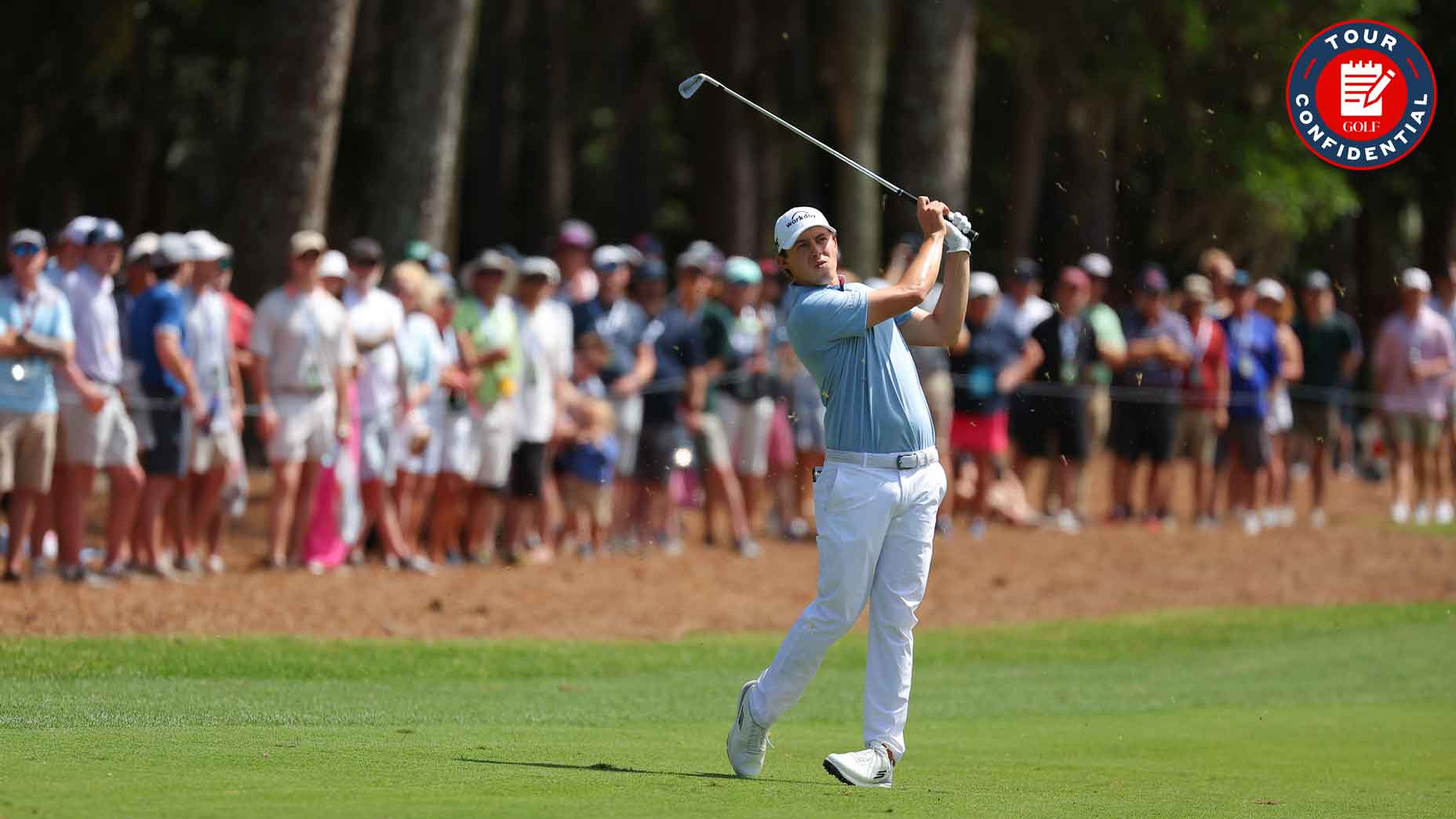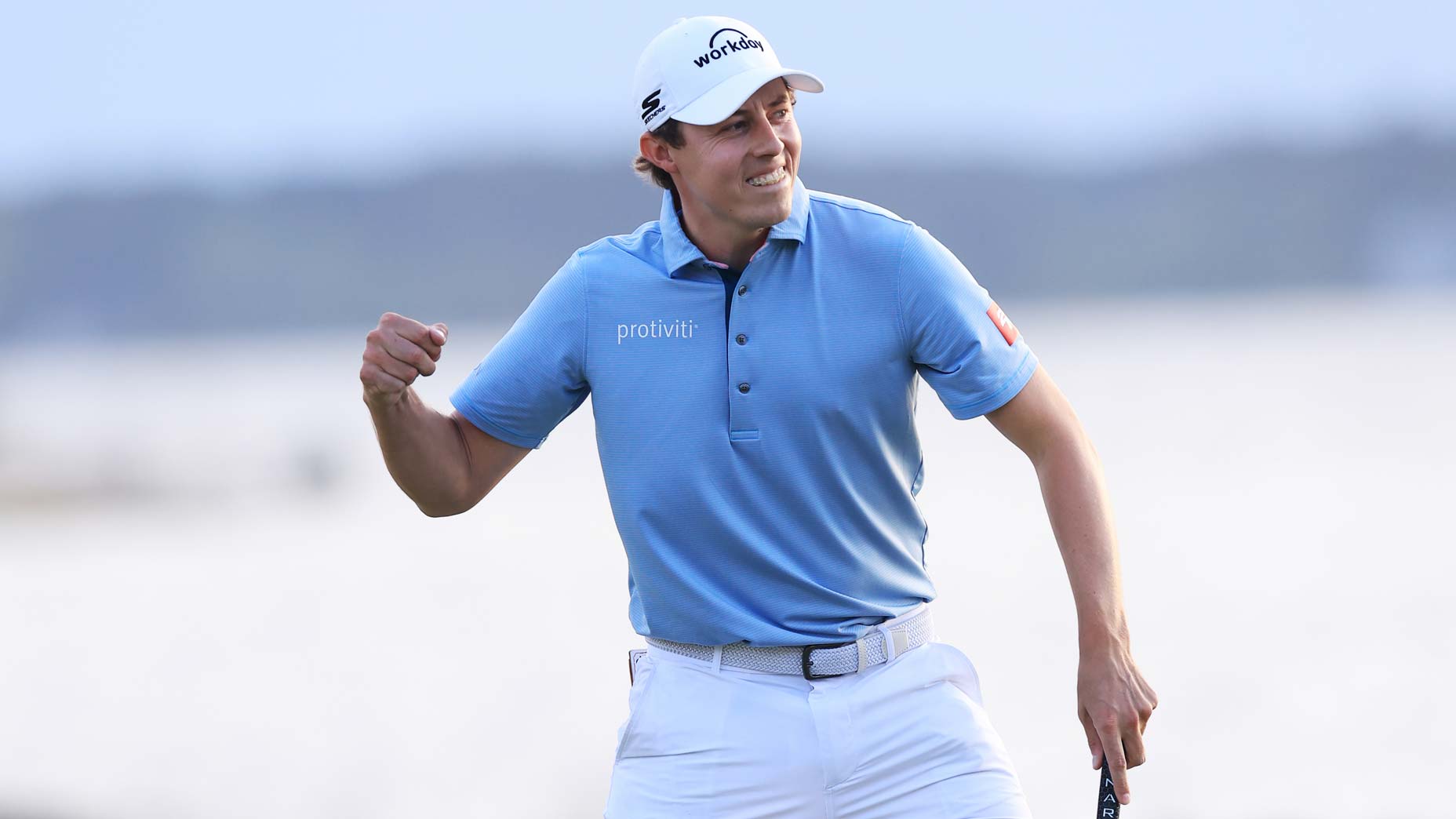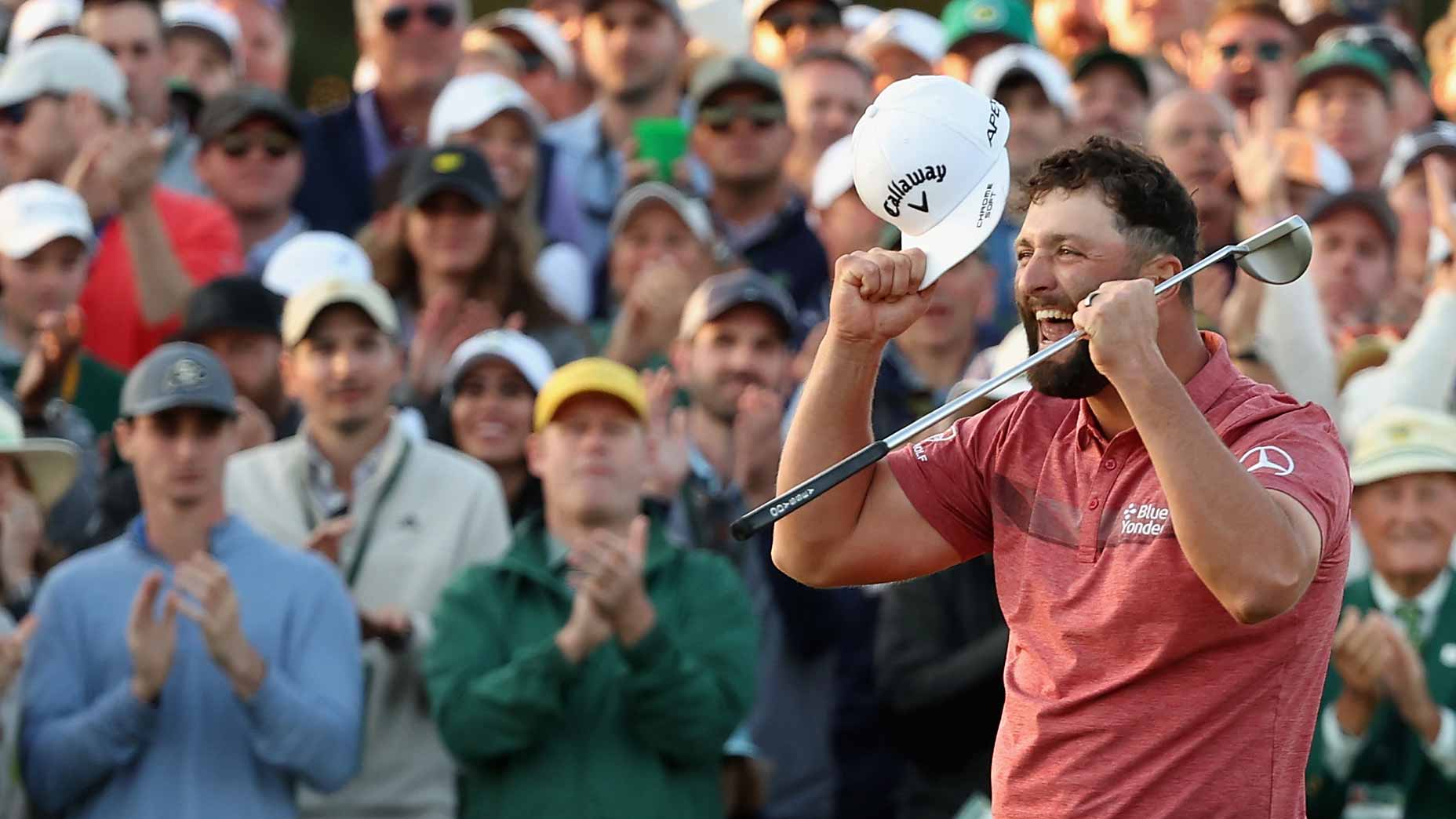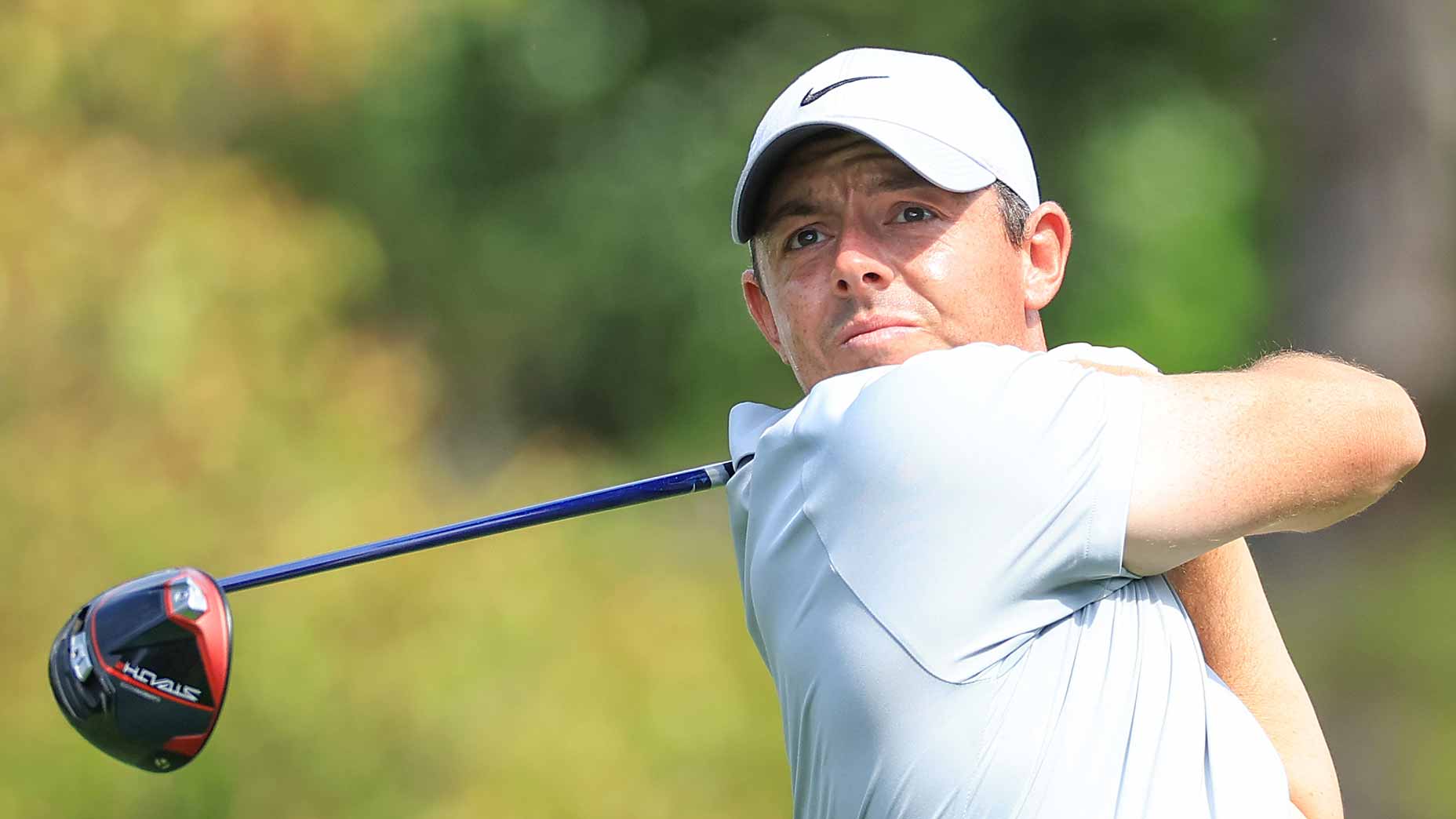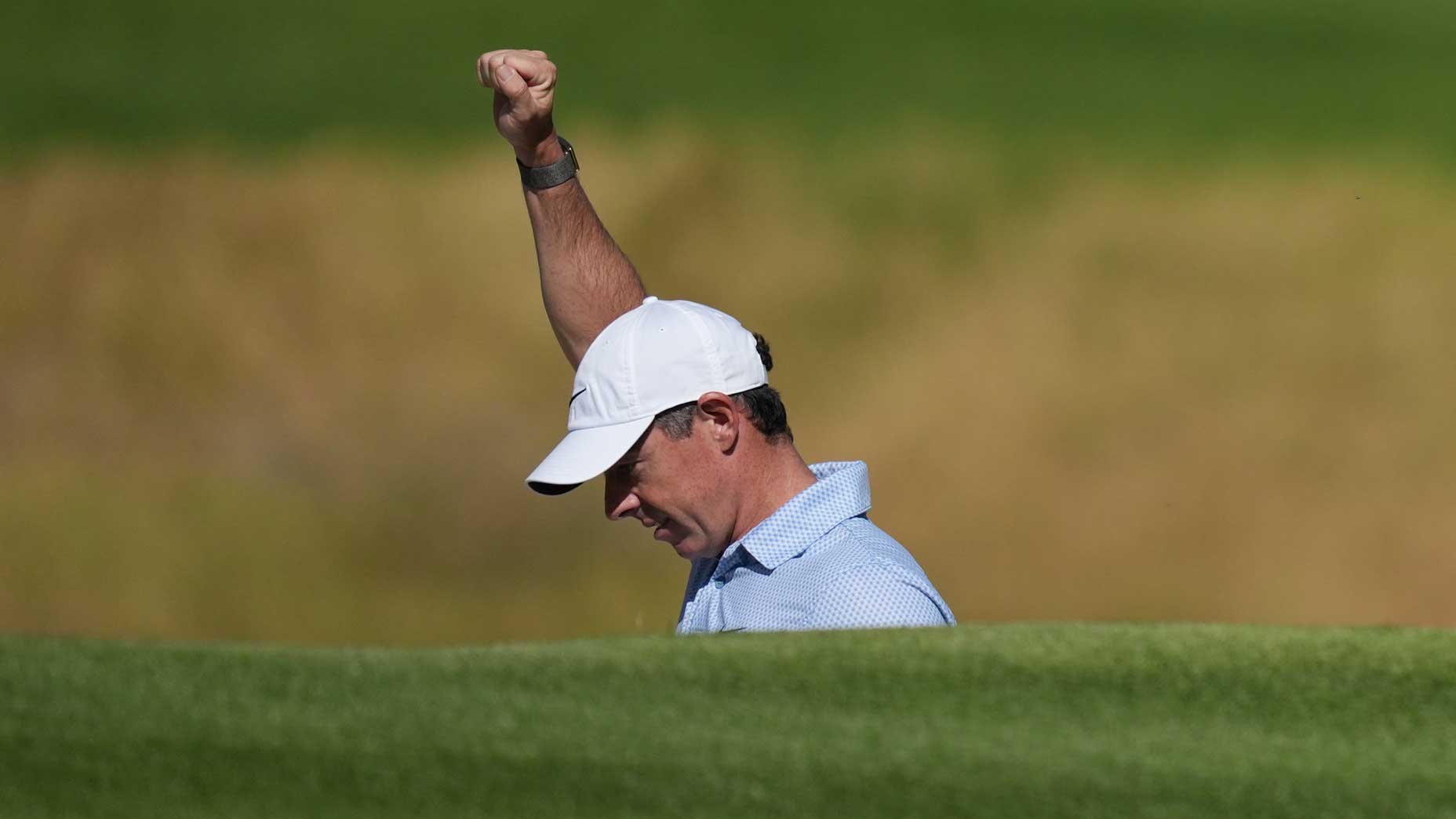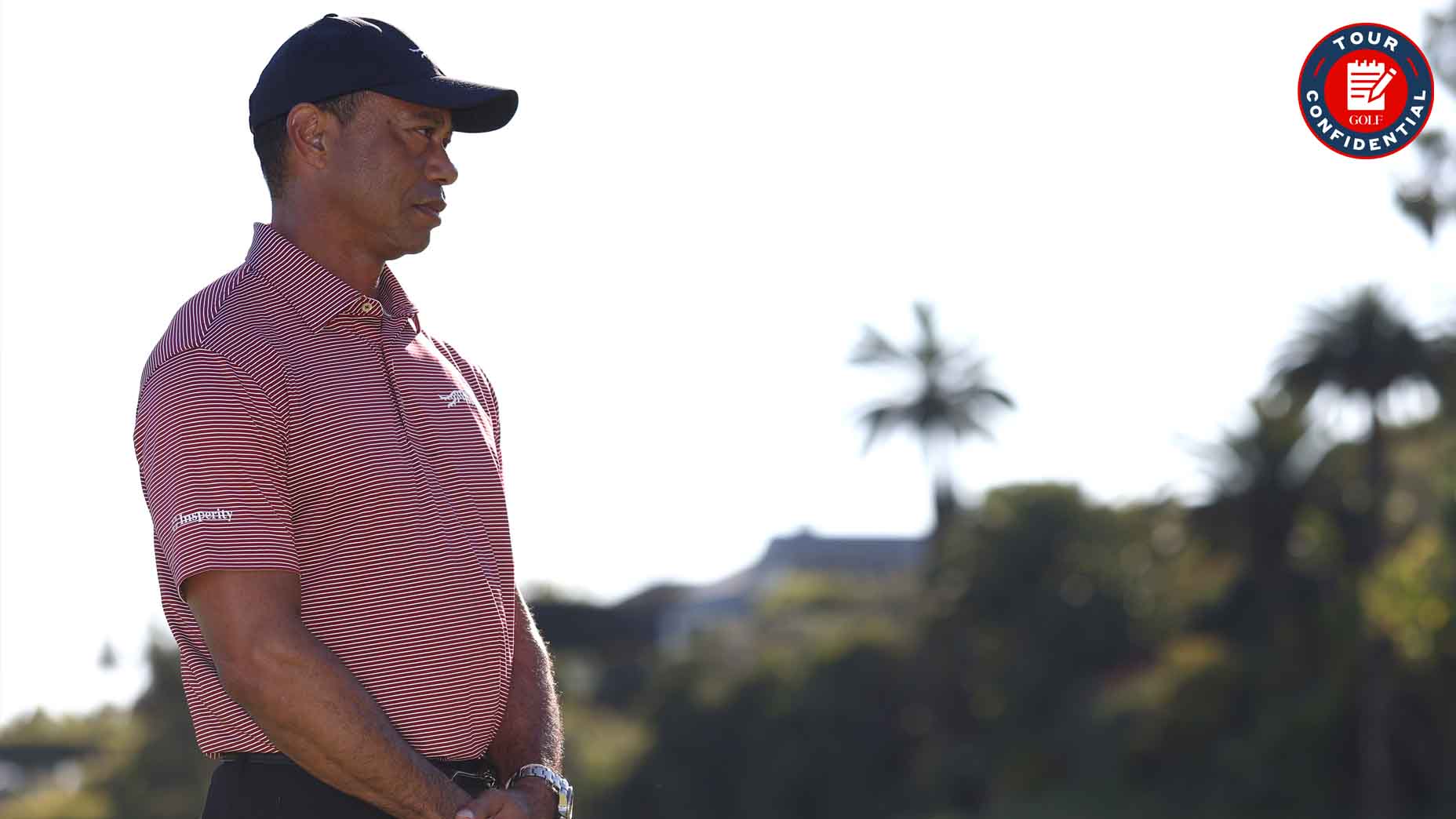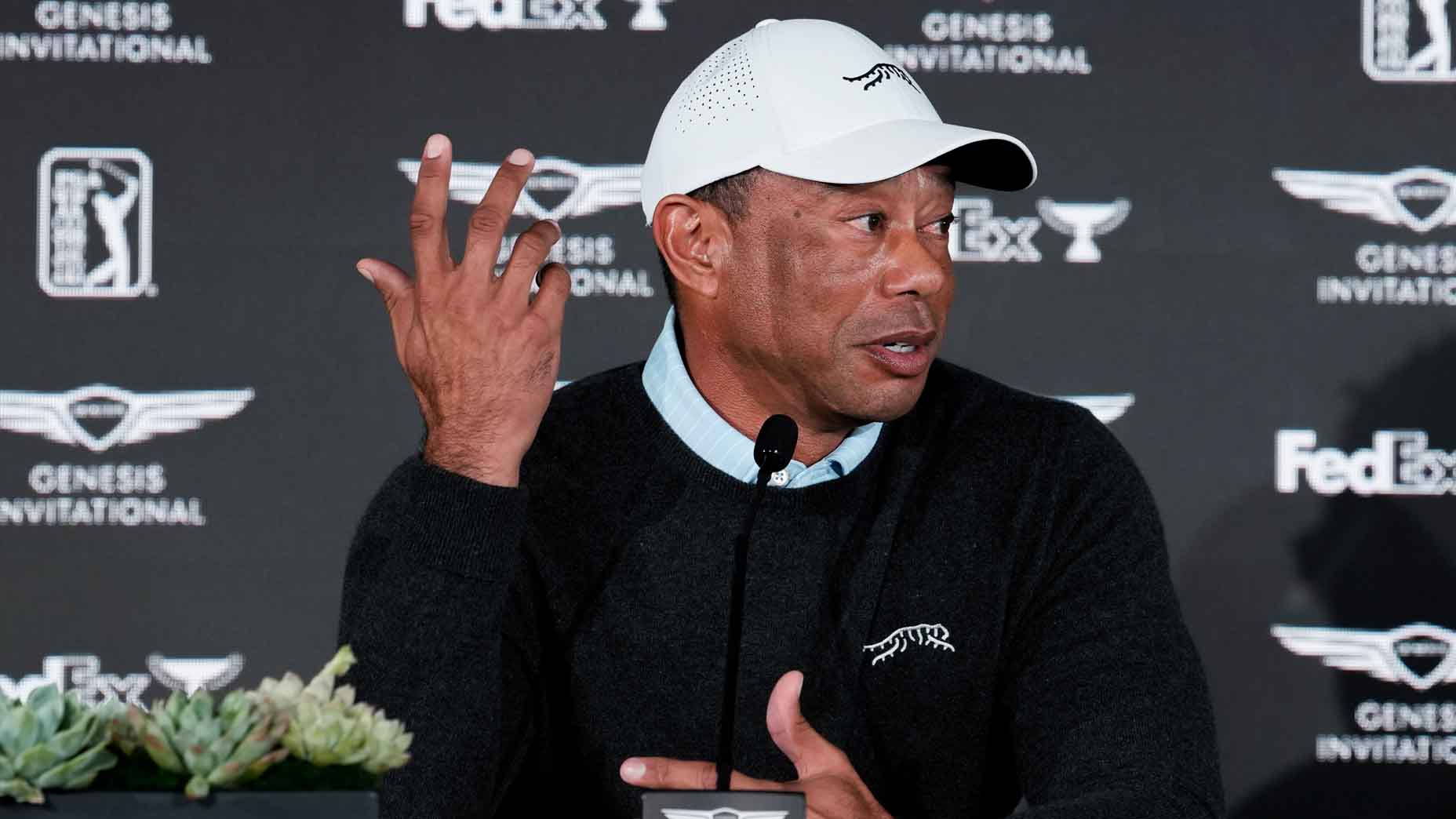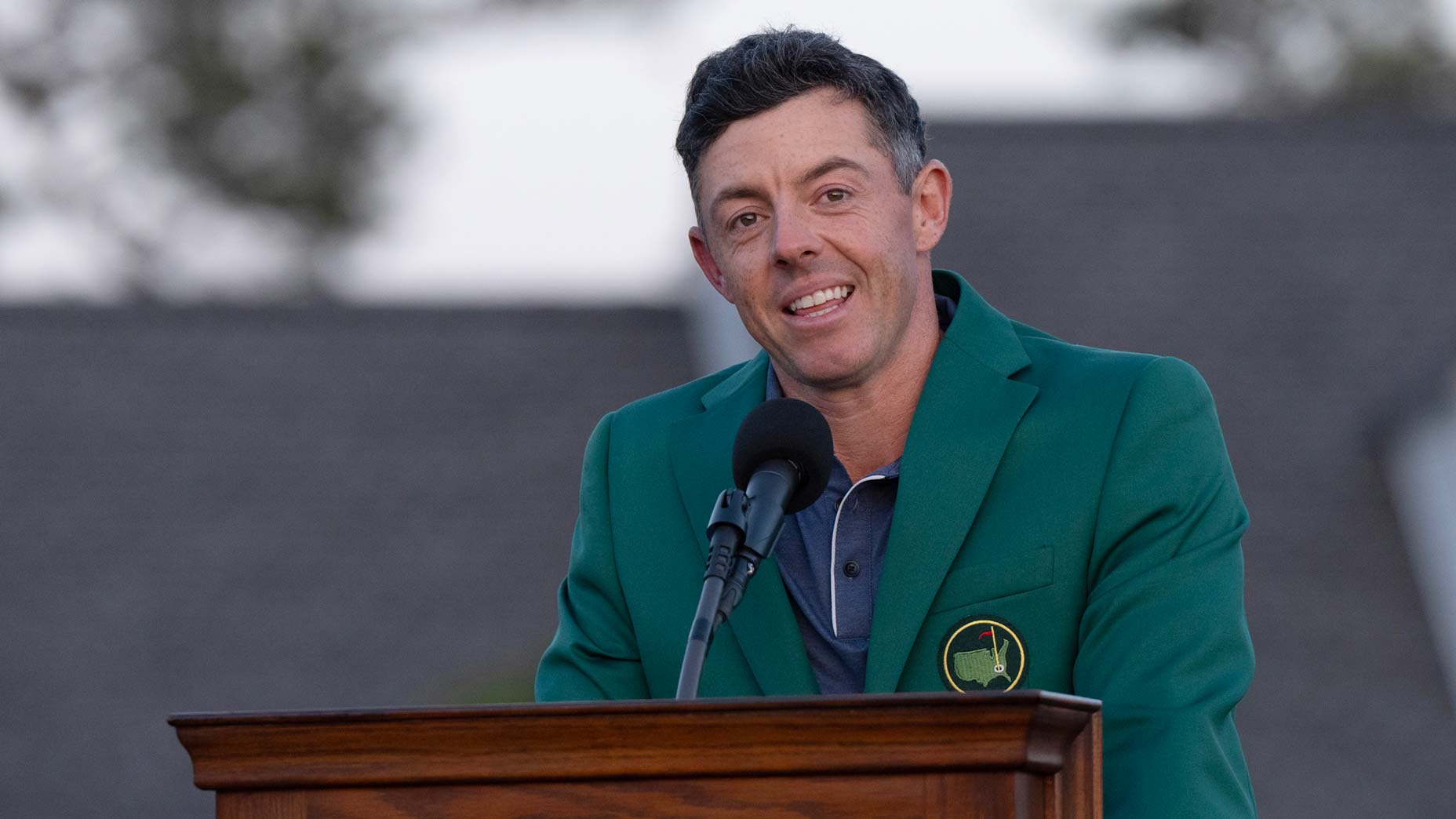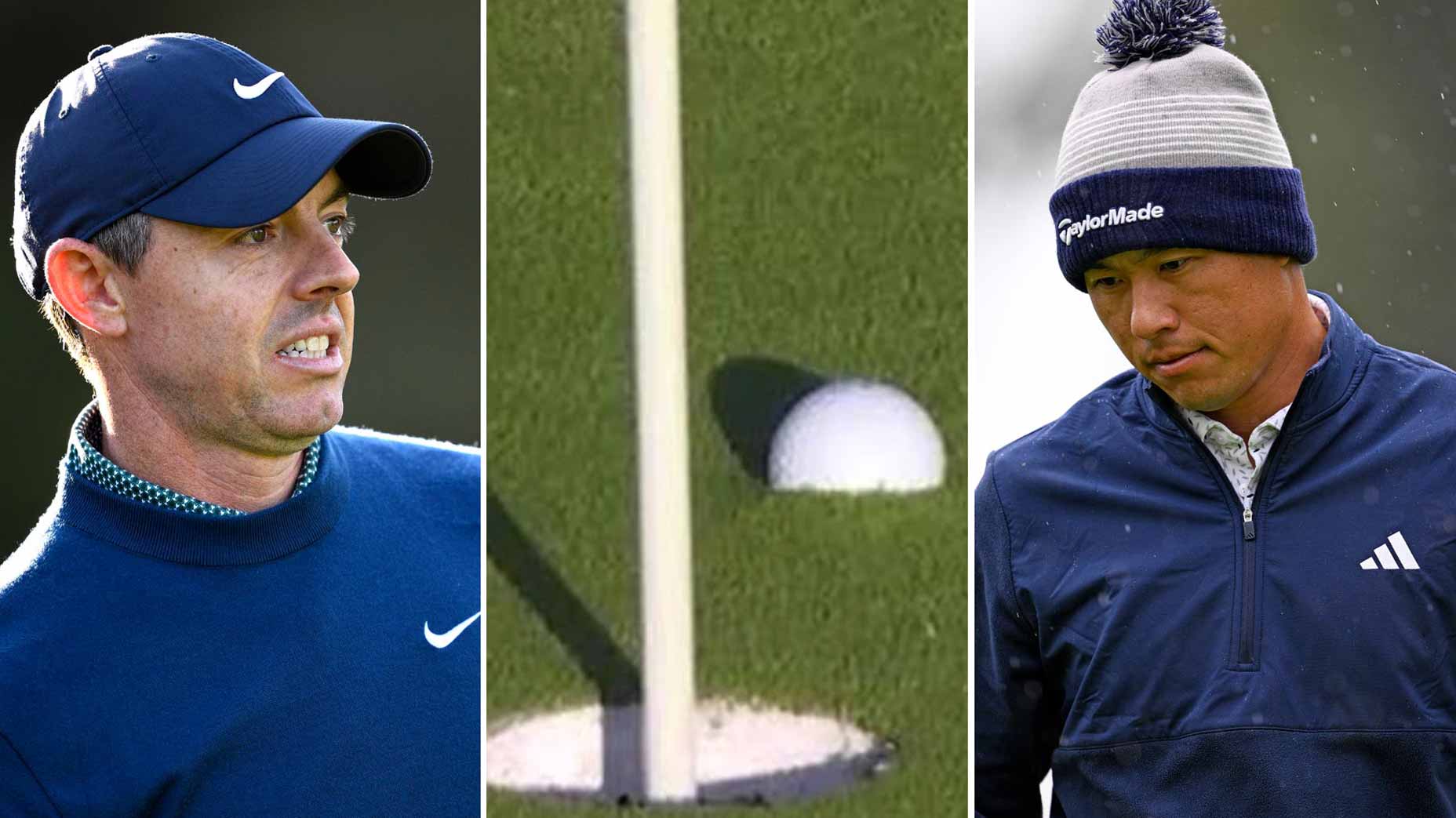Check in every week for the unfiltered opinions of our writers and editors as they break down the hottest topics in the sport, and join the conversation by tweeting us @golf_com.
1. Matt Fitzpatrick denied Jordan Spieth a repeat victory at the RBC Heritage on Sunday, as Fitzpatrick took down Spieth on the third playoff hole after Spieth caught a piece of the cup on both birdie tries earlier in the playoff but couldn’t get either to fall. What’s your takeaway from Sunday at Harbour Town and, despite the loss, what is it about this classic Pete Dye layout that suits Spieth’s eye so well?
Matt Fitzpatrick beats Jordan Spieth in playoff, wins RBC Heritage on familiar turfBy: Jack Hirsh
Josh Sens, senior writer (@joshsens): We’ve seen Spieth win on all kinds of courses, but Harbour Town is not a place you overpower. There are tons of tight shots, small greens, overhanging trees and crafty little chipping requirements — I’d say that’s a good fit for Spieth’s inventive game.
Dylan Dethier, senior writer (@dylan_dethier): Matthew Fitzpatrick played incredible golf down the stretch. He birdied 15 and 16 in regulation and stuffed a gutsy iron shot at 17 (even though he missed the putt) — and then hit a series of impressive shots before delivering the knockout blow on the third playoff hole. Spieth played well enough to win the event. But Fitzpatrick actually did it. Massive moment for him, and it was fun to see the thoroughbreds lining up at Harbour Town.
Zephyr Melton, assistant editor (@zephyrmelton): Harbour Town demands you be creative to access some of the tucked pins, and there’s no one with more imagination than Spieth. The more shot-making a course requires, the better-suited Spieth is to perform well.
2. One week after his Masters victory, Jon Rahm tied for 15th at the RBC Heritage and then sat for about 20 minutes with Amanda Renner and provided insight and commentary as the action unfolded on the CBS broadcast. What was your favorite learning from Rahm’s sit-down, and is this a repeatable practice for CBS? Or was Rahm’s chat, coming after a major win, a convenient outlier?
Sens: I dug the details he offered right when he came on air and was asked to describe Patrick Cantlay’s chip on 13. The Bob Rosburg caricature of the golf commentator is to make a shot sound impossible (He’s got nothing, Johnny) right before a player knocks it close. But Rahm was quick to share a bunch of observations — tight lie, heel is probably going to be exposed, gonna have to hit it soft — in a clear and concise way that seemed insider-y without being overly technical. He’d be good at the gig if he ever quit his full-time job. And sure, it’s repeatable. These guys aren’t popes or in witness protection. They should make themselves accessible. It improves the product, which is in their interest.
Dethier: Well said, Josh. The walk-and-talks have been fun, but not everybody’s going to be comfortable doing those in crunch time. Rahm putting on the headset immediately delivered as a fun, insightful alternative. He’s an obsessive golfer. Loves it. Plays it better than anybody else at the moment. Thinks about it all the time. And so the best way to get to know him better is to give him a mic a few minutes after he finished up his round and hear him nerd out about golf. He enjoyed it, the CBS team clearly enjoyed it and we enjoyed it as a result. Oh yeah, and he won the Masters last week …
Melton: My colleagues are spot on, here. It’s always great when you can get these guys talking shop, and having Rahm do so in the booth was a big plus. Here’s to hoping more players follow in his footsteps as the season goes on.
3. The final round of the Masters was the most-watched golf telecast on any network in the past five years, with an average of 12.058 million viewers and an increase of 19 percent over last year, CBS reported last week. What can we credit for the increase? The PGA Tour vs. LIV storyline in the final pairing with Rahm and Brooks Koepka? An increased appetite due to a Netflix series? Phil Mickelson surging up the leaderboard? Something else?
How massive Masters TV ratings compare to PGA Tour, LIV Golf’sBy: James Colgan
Sens: Not the LIV vs. Tour storylines, but the LIV vs Tour divide in general. It was the first time in this new season we got to see everyone in one place. There’s been lots of talk about how the majors now carry more weight than ever. The Masters was proof positive of that.
Dethier: There’s no way to really know, right? And I’m always reluctant to extrapolate too much from any one TV rating number. But it seems likely to be some combination of the above. Netflix introduced this professional golf world to a whole new crew. The gang was all back together and the LIV-Tour dynamic was intriguing. The best events feel big, and the Masters feels bigger than ever. Drawing this type of audience without Tiger Woods playing Sunday (and without Rory McIlroy, too!) is a great sign for professional golf.
Melton: Impossible to say, but I think Sens is on to something in that the golf-watching public was keen to see all the old gang back together. With the stars split between two tours, it makes the majors even more worth watching. When the big names tee it up together only four times a year, it makes those weeks must-watch TV.
4. The penultimate pairing of Patrick Cantlay and Viktor Hovland was criticized for their pace of play in the final round of the Masters — by both Brooks Koepka and Twitter — and Cantlay defended himself by saying it was slow for everyone. Fast-forward to Sunday at the RBC Heritage, and CBS on-course reporter Dottie Pepper said Spieth and Fitzpatrick were visibly frustrated with how long it took Cantlay to play a tricky shot inside a penalty area on the 14th green. Is it overrated or underrated how much incidents like this actually affect your playing partners?
‘Slow for everyone’: Patrick Cantlay responds to Masters pace-of-play criticsBy: Sean Zak
Sens: I think it’s pretty well established that slow play drives a lot of people crazy. What’s interesting to me is how many people defend slow play on Tour by emphasizing how important every shot is, how much money is at stake and yada-yada. That’s tedious. And dubious. I question the assumption that grinding like that actually improves performance. I suspect almost everyone would play a little better if they played a little faster, even the pros.
Dethier: Let’s break this down: Patrick Cantlay has a deliberate pre-shot routine and stands over the ball for a while before he hits, which annoys TV viewers when they’re shown the whole thing. I totally get that. But why would he change? To appease viewers complaining on Twitter? Cantlay doesn’t use Twitter. To speed up play? There are so many other slow players that he’s hardly a significant cause; look at the Masters, where his group was slow, but the groups in front of him were slow, too! To avoid penalty? Nobody ever gets penalized for slow play. I imagine he’ll work on getting a little faster — the more he’s in contention, the more he’ll get heat for this, and he’s a self-aware guy — but Cantlay’s not particularly focused on winning golf’s popularity contest, so there’s really very little incentive to change.
Also, I’d love to see more data on slow play and per-player numbers and see how everybody stacks up.
Melton: Look, these guys are professionals — it’s their job to block out the noise and perform in any number of circumstances. It might be frustrating, but the great ones persevere through far worse adversity.
5. Following his missed cut at the Masters, Rory McIlroy withdrew from the RBC Heritage and will now lose $3 million in guaranteed bonus cash since it’s the second designated event he’s missed this season. Do you have any issue with McIlroy, a vocal and influential piece of the Tour’s future, skipping this? Or is this the reality golf fans should expect when it comes to the Tour’s evolving designated-events model?
Why Rory McIlroy’s WD from the RBC Heritage cost him millionsBy: James Colgan
Sens: My general rule in life is that we’re all entitled to a few hypocrisies. And I’m willing to cut McIlroy some slack here. He went through an emotional wringer last week. That said, I do think we’ll see more of this as schedules evolve and it could become a problem if a bunch of players opt to start skipping all at once. It’s hard to come up with effective consequences for guys who can afford to forgo $3 million. That is what is known in everyday parlance as having f-you money, and a lot of the biggest names in the game possess that kind of dough
Melton: I don’t have any issue with him skipping — I know I wouldn’t want to play another event after the mental-drain that is the Masters — but I do find it odd. McIlroy was leading the charge on the new PGA Tour model, and to see him be the first to skip two events is strange. I’ll give him the benefit of the doubt, but the optics aren’t the best.
Dethier: I’m with Zeph — It’s pretty strange. I’m eager to hear McIlroy’s explanation and will reserve judgment until then, but here’s the thing: He knows he’ll get roundly criticized for this. He knows it’s a bad look. He knows what other guys on Tour will say. He knows there could be significant financial consequences. He knows he’s been beating this drum for a year. And he skipped it anyway. That means something. We just won’t know exactly what until we hear from McIlroy himself.
